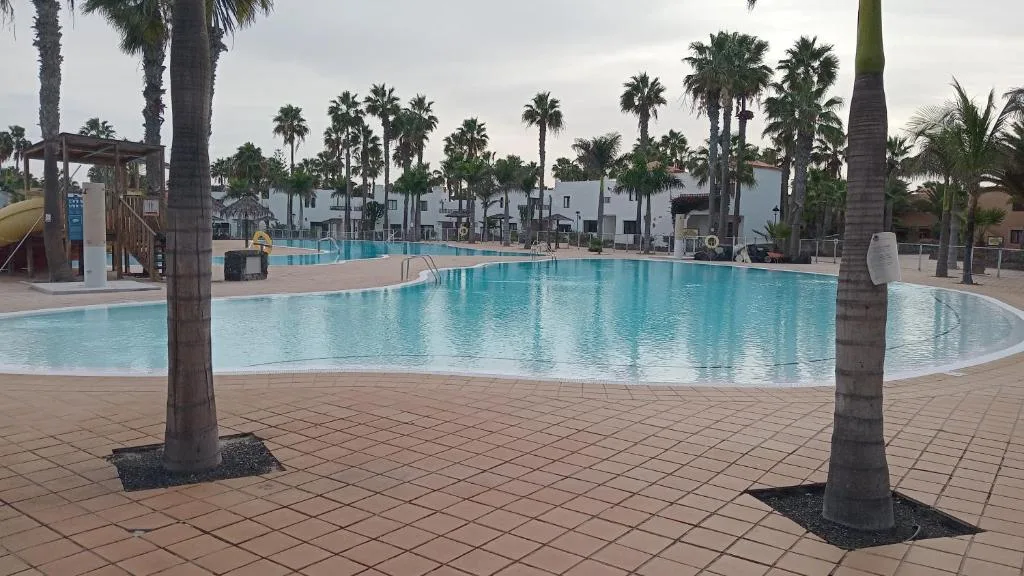Fuerteventura is an island of contrasts and open spaces. Here, time slows down, the wind shapes the landscape, and every beach has its own voice. In this guide, you’ll find the most captivating places, plus tips on how to experience the island in the right rhythm.
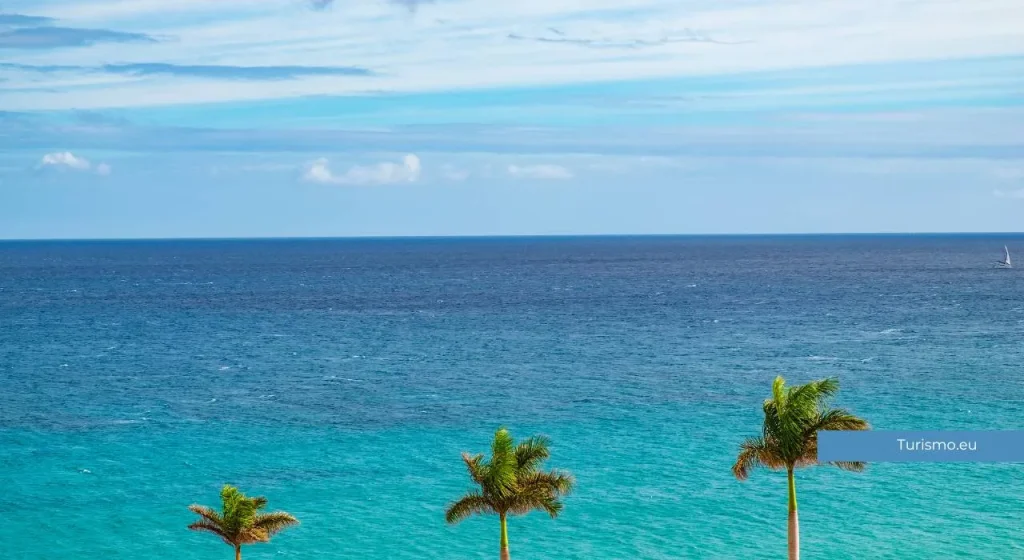
The second-largest Canary Island, it’s a true paradise for lovers of beaches, water sports, and unspoiled nature. With its desert-like scenery, golden dunes, and crystalline sea, Fuerteventura offers the perfect blend of relaxation and adventure.
In this guide, you’ll discover what to see—from the most beautiful beaches on Fuerteventura to historic sites, scenic viewpoints, and unforgettable experiences.
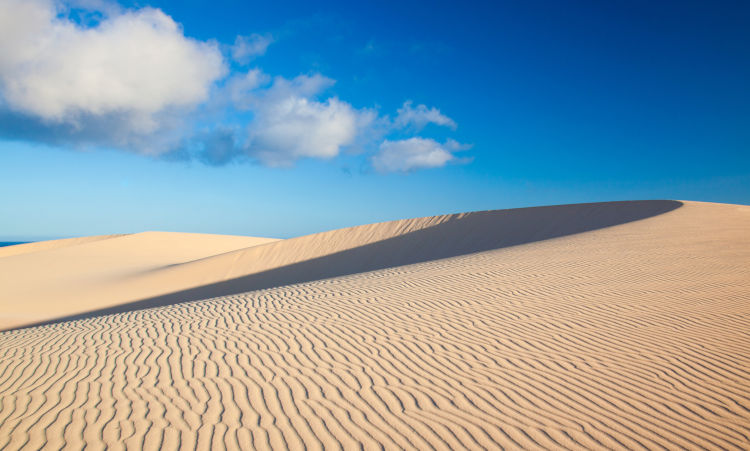
Early in the morning or late in the afternoon—before sunset—is the best time to enjoy the golden light and avoid strong winds. The area is easily accessible by foot, bike, car, taxi, or bus.
On the road from Corralejo to Puerto del Rosario, just after the large RIU Hotels, start walking inland into the desert and lose yourself among the dunes.
Soon the sound of the road fades behind you—just silence and soft, cool sand beneath your feet.
A gift from nearby Africa (only 100 km away), the Sahara’s sand carried by warm winds has sculpted these incredible dunes.
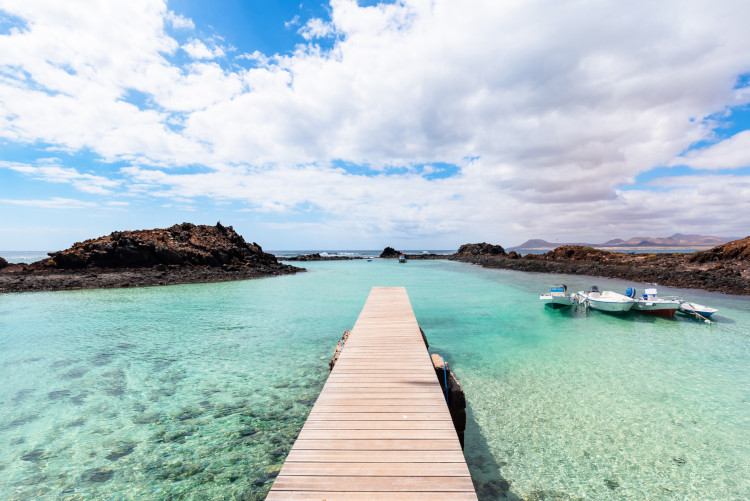
The islet of Lobos stands as a natural barrier in the bay of Corralejo, only 2 km away and easily reachable in just 15 minutes via small boats departing from the harbor.
This protected and untouched natural park offers beautiful coves with crystal-clear water, remote and isolated beaches — a world apart where you can truly experience the ocean and explore enchanting seabeds perfect for diving.
Surf lovers know the island for its legendary “Right Wave,” one of the longest in Europe (about 1 km), reaching up to four meters in height.
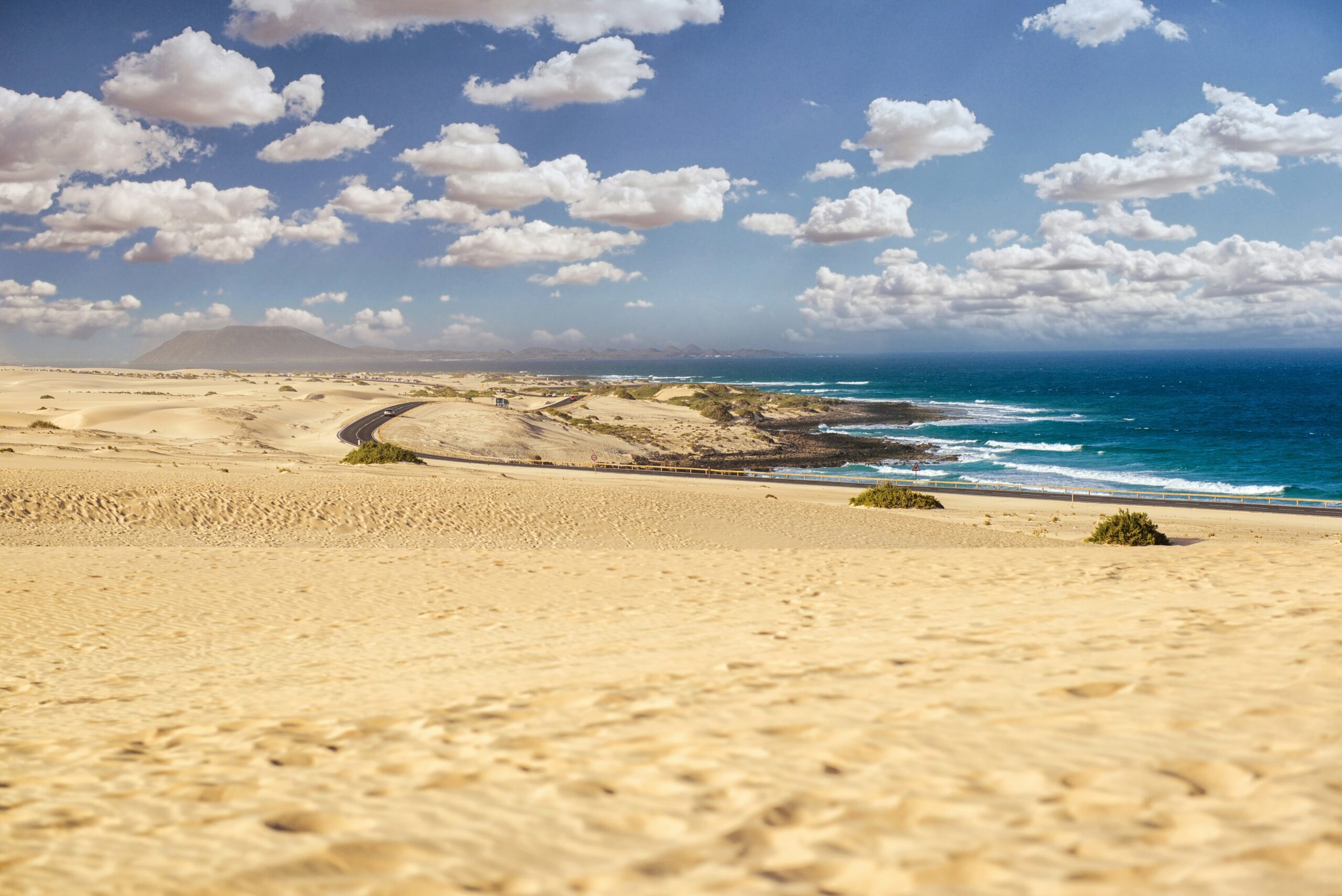
Where the desert ends and the sea begins, you’ll find the Grandes Playas: kilometers of soft, welcoming white sand.
Easily accessible by car, bicycle, or on foot. There are both equipped areas with sun loungers and umbrellas, and wide stretches of completely wild beach. You’ll often spot the characteristic volcanic stone “nests,” built to shelter from the wind and enjoy the sun.
Scattered along the beach, nestled among the dunes, are small beach bars where you can have lunch. The sky is often dotted with colorful kitesurf sails — a familiar landmark when heading toward the Grandes Playas.
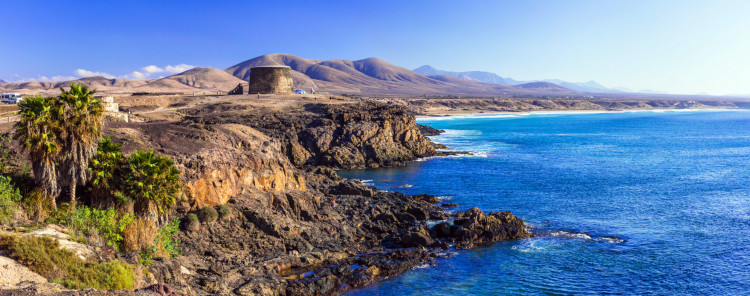
About a 30-minute drive from Corralejo, on the opposite coast, the small village of El Cotillo offers stunning views. You reach it via Lajares, cutting through the raw and fascinating inland.
As soon as you see the first houses, turn left toward the “Tostón Tower,” though the real wonder lies beyond. Soon, the view opens up over the ocean, dramatic cliffs, and a vast beach filled with surfers chasing long waves. On the right side of the village, heading toward the “Tostón” lighthouse, you’ll find beautiful white beaches — first the “Lagos,” then “La Concha.”
During low tide, natural pools of crystal-clear water form, making even the Atlantic Ocean pleasantly swimmable.
Located near Lajares, Calderón Hondo is an extinct volcano with a 70-meter-deep crater. A well-marked trail leads to the summit, offering panoramic views of Fuerteventura and Lanzarote.
⚠️ Please note: entering the crater is not allowed.
It’s an accessible excursion, ideal for nature and geology lovers.
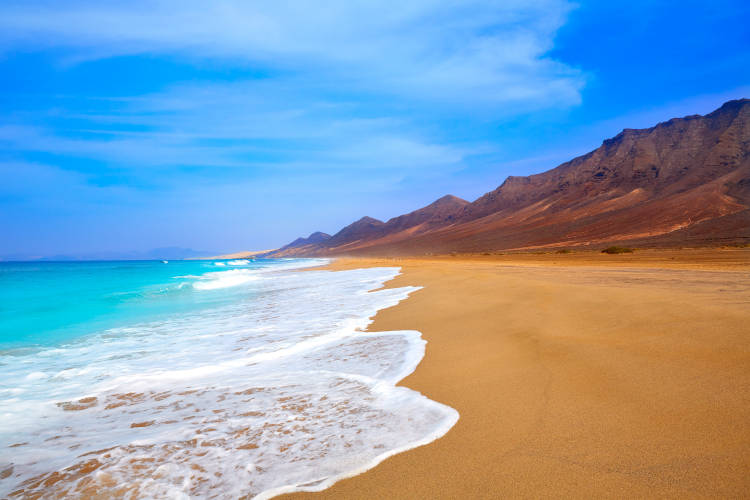
You can’t miss this spectacular beach in the southern part of the island — it captures the very soul of Fuerteventura. Just be careful: swimming is not recommended due to dangerous currents. To get there, you’ll need to drive along a long dirt road (about 20 km), but it’s absolutely worth the journey — preferably with a 4×4 vehicle.
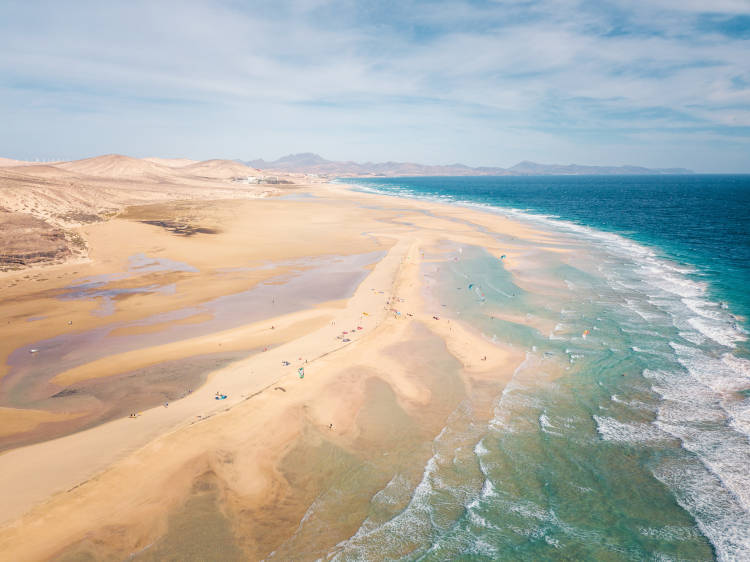
Further south lies the Costa Calma area and the unique Playa de Sotavento, a world championship windsurfing destination. This beach is known for its tidal lagoons that create a surreal landscape. It’s a paradise for kitesurfing and windsurfing.
If you’re passionate about windsurfing, this is the perfect spot.
If not, simply enjoy a long walk along one of the most beautiful beaches of the island.
At the island’s southern tip, the Punta Jandía lighthouse offers breathtaking panoramic views over the Atlantic.
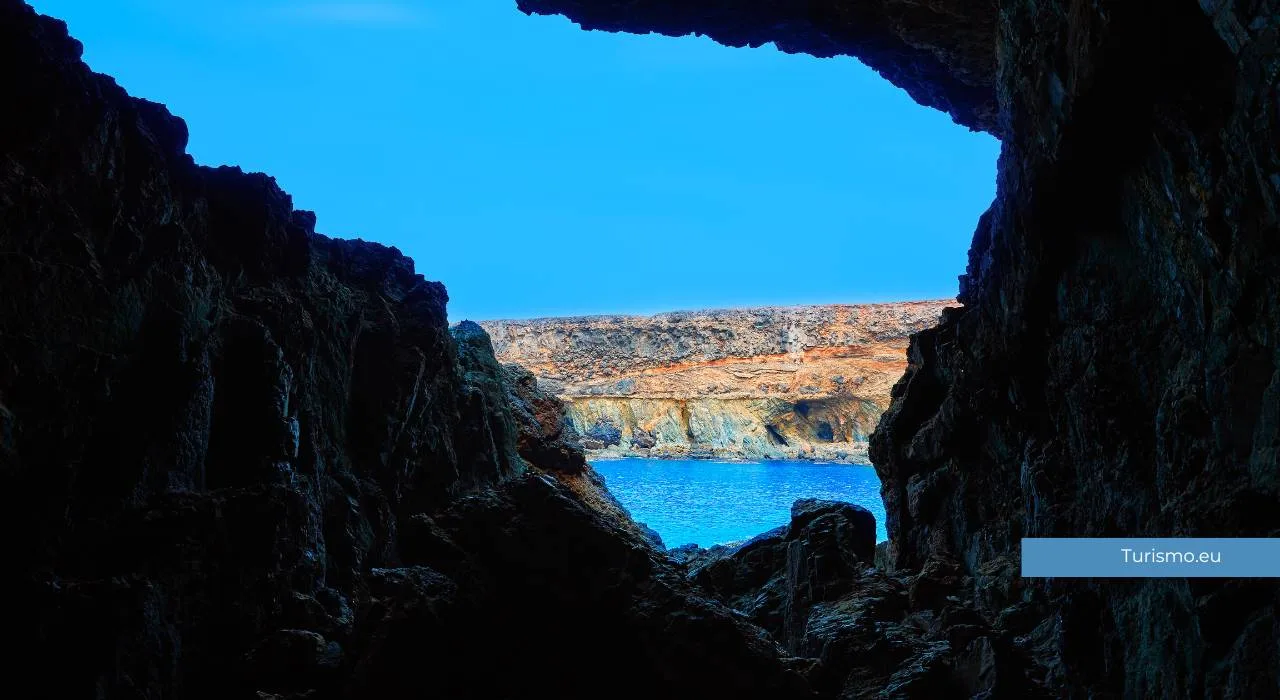
Heading north along the west coast, take a detour to Ajuy, a small seaside village with the island’s most beautiful black sand beach.
To the right of the beach, a trail along the cliff leads to gigantic caves with dramatic views of the ocean — truly something special.
If it’s a windy day, don’t miss the impressive waves crashing against the shore, which over time have shaped the caves themselves.
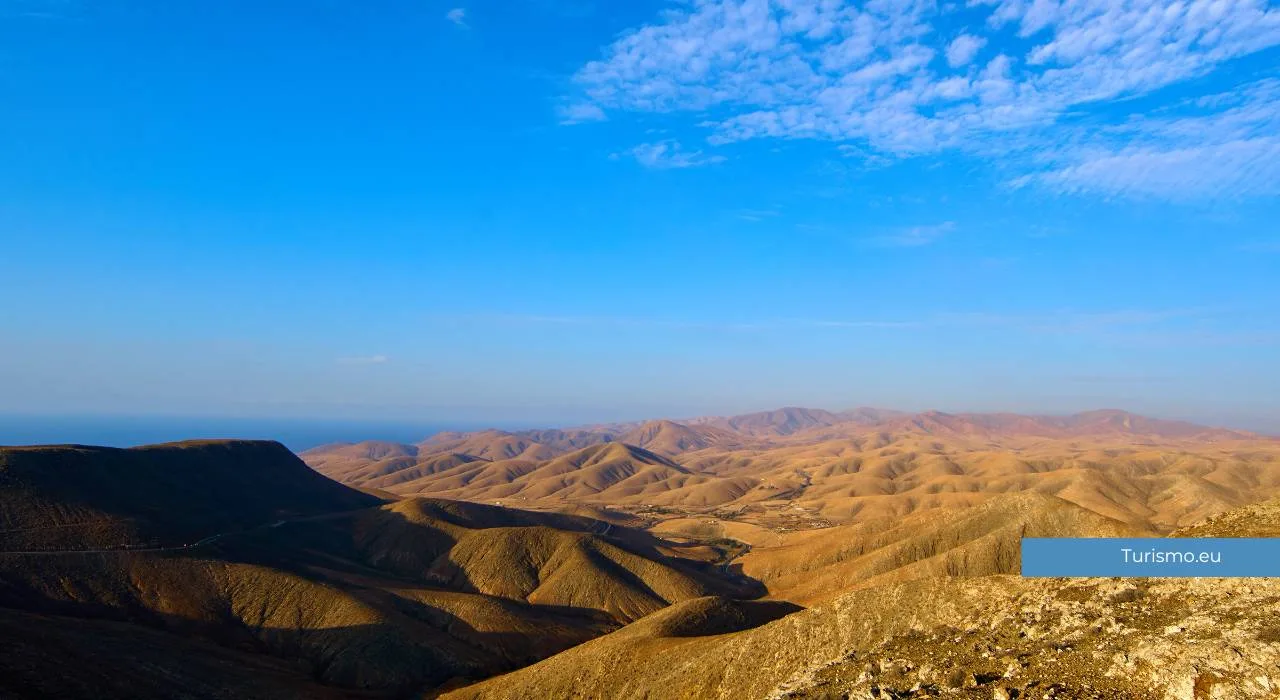
Betancuria, the island’s former capital, is a charming village with cobblestone streets and the Church of Santa María. You can also visit the Archaeological Museum to learn more about the island’s early inhabitants.
We also recommend a stop at Mirador Morro Velosa, a scenic viewpoint offering sweeping views of the island’s gentle hills.
Caleta de Fuste, in addition to its beach, is home to the island’s only thalassotherapy center, a well-equipped spa ideal for a full afternoon of relaxation.
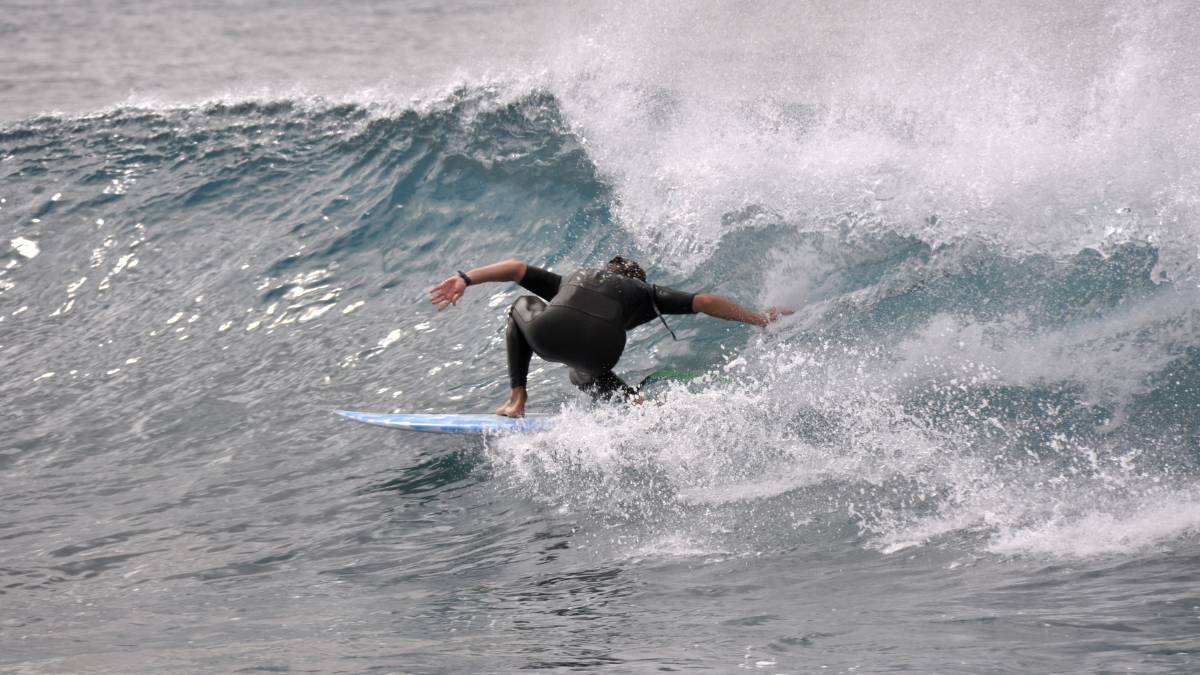
Fuerteventura is equipped with both hotel and sports facilities that meet the needs of all levels, offering a wide range of activities including tennis, paddle, golf, athletics, cycling, sailing, and trekking.
There are also specialized high-performance training complexes for professional athletes, featuring state-of-the-art equipment and excellent service provided by professional instructors.
The island hosts numerous teams and sports groups — from cycling and handball to beach volleyball, triathlon, and swimming — who choose Fuerteventura to train or prepare for the next season in optimal conditions.
If you’d like to learn more, check out these recommended articles:
→ Activities and Sports in Fuerteventura
The island’s traditional cuisine is full of authentic flavors. Don’t miss:
Queso Majorero – the island’s goat cheese, winner of several international awards.
Papas arrugadas con mojo – small potatoes with either green (cilantro-based) or red (pepper-based) sauce.
Puchero Canario – a hearty stew made with meat and vegetables.
Gofio – a toasted cereal flour used in many local dishes.
In Corralejo, you can: Take boat tours to spot dolphins (ICENAI Tel. +34 616705188) or catamaran excursions Enjoy horseback rides (Aníbal Tel. +34 669017188) Go trekking on volcanoes
Try Surfski tours with Maeva Kayak
The town also offers a scenic golf course, numerous tennis and paddle courts, and a water park for family fun.
Thanks to its mild climate year-round, light spring clothing is suitable even in winter, especially during the day.
However, temperatures drop in the evening, so it’s best to also bring a jacket, sweatshirt, and long pants.
The ocean is obviously colder in winter, but it’s always worth packing your swimsuit and towels to enjoy the beaches — and for the brave, a refreshing swim.
In summer, temperatures rise but never reach unbearable levels thanks to the trade winds. Still, bring a light jacket for the evening.
The island enjoys a pleasant climate all year. The best months for sun and sea are from April to October.
November and December still offer sunny days but with slightly more unpredictable weather.
From January to March, temperatures drop a bit and the strong winds can make it feel cooler. Rain is rare, as the island has one of the lowest rainfall averages in Europe.
In March, Fuerteventura celebrates Carnival, one of the most vibrant events of the year.
With one week, you can explore half the island. To see it all and still have time to relax, plan for at least 12 days.
The ideal formula? 6 days in the north and 6 days in the south, so you can enjoy all the emotions the island has to offer — calmly and consciously, embracing the energy of its wide open spaces.
Corralejo: Perfect for nightlife and sports lovers. The local Italian community is strong, and Italian is frequently heard. It’s also family-friendly with safe beaches and activities for kids.
Costa Calma: Ideal for families.
El Cotillo: Best for a quiet and authentic experience.
Searching for an accomodation?
CASA LIVIA POOL & SUNSET
Villa in Corralejo with private pool, garden ancd barbecue
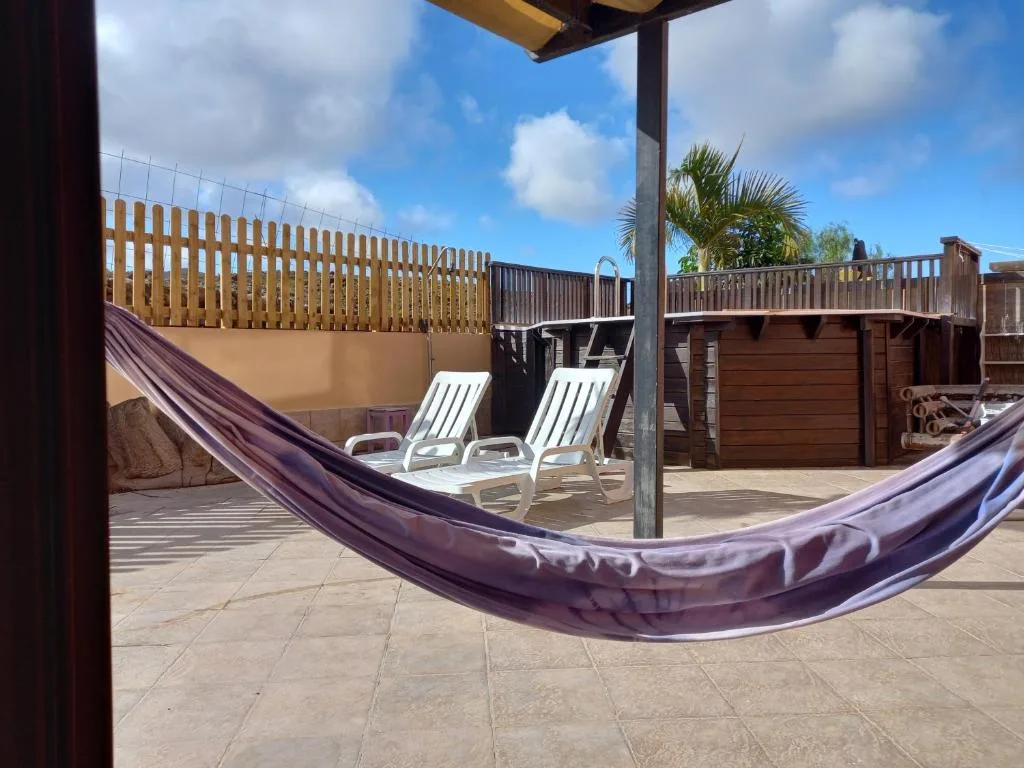
DUNASLIVIA
Apartament in Corralejo center in residence with pool
